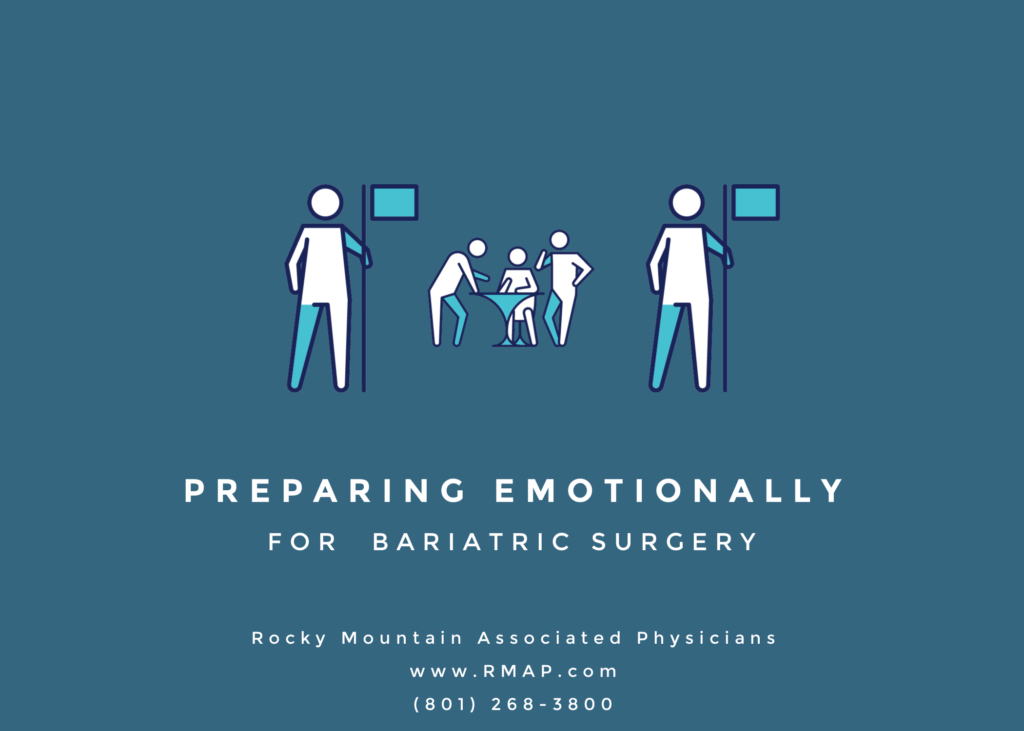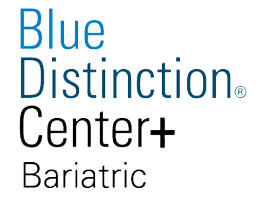
Learn more about weight loss surgery at Rocky Mountain Associated Physicians www.RMAP.com (801) 268-3800
While bariatric surgery is a powerful surgical tool to help with weight loss, so much more than the weight loss occurs for patients post-operatively. It is a lifechanging decision bariatric patients make that requires commitment. While it can be an exciting time, it can often be scary to make such a lifechanging decision. Surgery is not “an easy fix” nor is it “the easy way out.” So many bariatric patients comment on how they prepared themselves for the physical changes that come with weight loss surgery, but they found themselves less prepared for the emotional changes.
Most insurances will have criteria for patients to meet before surgery in order for them to grant approval. It can sometimes take anywhere from 3-12 months to get approved! Because of the number of steps than can be required and the prolonged time it can take for them to complete, many patients find themselves getting discouraged. However, instead of viewing the insurance requirements as a set-back or getting discouraged, this can prove an excellent time to mentally prepare yourself for all the changes in food selection, habits, and anatomy changes that will come following bariatric surgery.
We want all of our patients to understand and be aware of the changes that comes with bariatric surgery, which is why we have our patients attend so many educational classes! The more our patients know and understand, the better long-term success they will have. Sometimes patients are under the impression that everything will be easy and perfect after surgery, that surgery will instantly take away your appetite or the weight will melt right off and you can never gain it back. This way of thinking is the foundation for failure and can lead to feeling deceived or let-down. It is important to understand that weight gain can happen, unhealthy habits and cravings can come back and that while surgery is a lifechanging surgery tool in order for it to work most effectively, there must be a commitment towards hard work and consistency…for life!
Habits you have held throughout your life are hard to break and rewiring your brain to think differently is hard. Breaking those unhealthy habits requires actively working on them.
Emotional Eating
The topic of emotional eating is popular among our patients. Many have said how much they “miss food.” Many things can be a “trigger” for emotional eating such as life stressors, relationships, self-image and doubt, boredom, bad days, so on and so forth. Inevitably, life still happens after bariatric surgery.
Identifying those stressors that could trigger emotional eating could help benefit your weight loss journey and maintenance success. Figuring out the root problem and actively working it prior to surgery, either by getting help from a therapist, nutritionist, or dietician, could benefit your success post-surgery.
Support from Friends and Family
For most patients, bariatric surgery is a positive change that friends and family will support. Unfortunately for some, relationships are negatively affected. Your relationship with food is changing, and sometimes friends and family might not fully understand those changes. Some might even knowingly try to sabotage your success.
Many food-centric events such as family get-togethers, dinner dates, holiday feasts, and even lunch breaks will start to look different due to your new habits and changed anatomy. Preparing your family and friends for these changes by sharing with them the knowledge and tools, given to you in the education classes, can better prepare them to support your decision.
Weight Loss Equals Body Changes
It is no secret that with weight loss will come some body changes. For some, the attention can be exciting, while for others it can be a little overwhelming. Some see the changes and are proud of what they see, while others only see the markings of extreme weight loss and excess skin that can happen which can be alarming to them. You should always be proud of your hard work! That doesn’t mean you should feel shameful or embarrassed for those changes.
Our clinic can provide a list of several plastic surgeons or even psychologists to help you with these changes. We also have support groups for our patients to reach out to one another, share their journeys – the good, the hard, the triumphs and the setbacks– for emotional support from others who might be going through or have overcome the same things.
For more information on our support groups or on how to join, please click here. We are all here to support, listen, and help you through your journey! We want you to succeed and live a full, happy, and healthy life. In order to do so, we caution against thinking that weight loss surgery will fix all of your problems in your marriage, with self-image or self-esteem, with your mental health, or with unhealthy eating habits. Getting in front of those problems prior to surgery and working on them constantly can help set you up with a healthy mindset ahead of the new changes that come following surgery.
Bariatric surgery is undoubtedly a major lifestyle change, and takes strong determination and commitment to have long-term success. It is a decision you make for a healthier you: physically, mentally, and emotionally. It is common to have setbacks and doubts, but that does not mean you are a failure or that you have ruined your tool for weight loss. Refocus, reevaluate, and set realistic goals for yourself.
Stay in contact with your surgeon and team, do your annual bloodwork, attend our monthly support groups, and continuously work on understanding your new anatomy, building your new healthy habits, and reflecting on the emotional side of bariatric surgery.
Links to related articles:
Psychosocial and Emotional Effects of Weight Loss Surgery
The Power of Self Acknowledgement
Achieving Your Goal: The Importance of a Positive Mental Attitude
Finding Support and Being Aware
www.RMAP.com
Rocky Mountain Associated Physicians
801-268-3800
1160 East 3900 South, Suite 4100
SLC, UT 84124













 Address: 1521 East 3900 South STE 100
Address: 1521 East 3900 South STE 100 Office: +
Office: +  Fax number (801) 268-3997
Fax number (801) 268-3997 Email: info@rmapinc.com
Email: info@rmapinc.com



